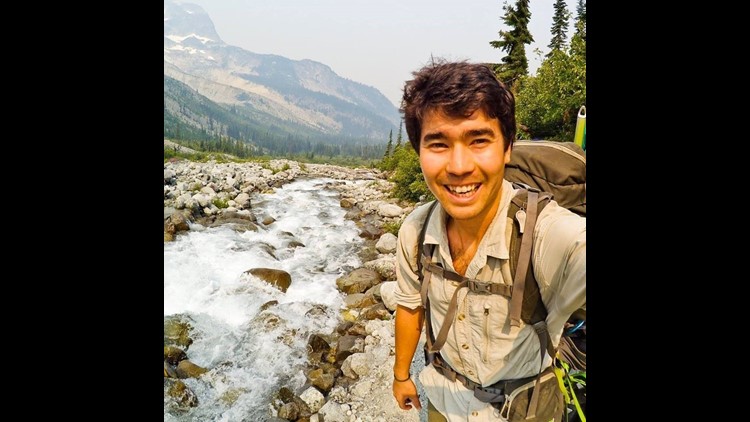The tribe that appears to have killed American John Allen Chau on remote North Sentinel Island in the Bay Bengal is one of a number of vanishing peoples sealed off from the rest of the world.
The Sentinelese, as they’re known, are protected by Indian law to preserve their way of life and prevent them succumbing to modern illnesses to which they have no immunity.
Laws banning outsiders from going within five nautical miles of the island are also there to protect strangers as the tribe, who has lived on the island for tens of thousands of years, has a history of forcefully repelling outsiders.
Their numbers have declined in recent years, however accurate counts are hard to obtain as they can only be observed from a distance due to the dangers in approaching the tribe.
According to India’s 2011 population census, only 15 Sentinelese were estimated to remain on the island.
Described as “arguably the most enigmatic people on our planet,” by Norwegian geneticist Erika Hagelberg, the wider group of Andaman Islanders, which comprises several distinct tribal groups, were largely isolated until the island chain was turned into a British penal colony in the 19th century.
Fiercely isolationist
First contact was made by the British in the late 1800s, when, despite attempts to hide, six individuals from the tribe were captured and taken to the main island of the Andaman Island archipelago. Two captured adults died of illness while the four children were returned — perhaps also infected with illnesses that the islanders’ immune systems were unequipped to deal with.
Except for a brief, friendly interaction in the early 1990s, they have fiercely resisted contact with outsiders, even following disaster.
In 2004, following the Asian tsunami which devastated the Andaman chain, a member of the tribe was photographed on a beach on the island, firing arrows at a helicopter sent to check on their welfare.
Two years later, members of the tribe killed two poachers who had been illegally fishing in the waters surrounding their home island, North Sentinel Island, after their boat drifted ashore, according to Survival International, a nonprofit dedicated to the protection of isolated tribal groups, which calls the tribe the “world’s most isolated.”
“The British colonial occupation of the Andaman Islands decimated the tribes living there, wiping out thousands of tribespeople, and only a fraction of the original population now survive. So the Sentinelese fear of outsiders is very understandable,” the group said.
Adventurer killed
It’s believed the Sentinelese killed Chau after he asked a local friend to find a boat and several fisherman to help him get closer to the prohibited island.
From the boat, the fishermen said Chau used a canoe to reach the shore on November 16. He returned with arrow injuries the same day, but set off once again to reach the island on November 17 never returned. The fisherman later saw the tribespeople dragging his body around, authorities said.
Chau knew the island was a restricted area and his mission there was illegal, according to a friend, John Middleton Ramsey.
He had made a scouting trip to the remote island chain several years ago, and when he returned, Ramsey recalled Chau talked about his plans to return, bearing gifts for the Sentinelese people.
He said he wanted to get to know the islanders’ way of life, eventually share the gospel and perhaps translate the Bible, Ramsey recalled.
Anthropological expeditions were made to tribal groups in the island chain in the 1980s and 1990s, and “gift-dropping trips” continued until the mid-90s, but now all contact has ceased.
The Indian government has adopted an “‘eyes-on and hands-off’ policy to ensure that no poachers enter (North Sentinel Island),” according to India’s Ministry of Tribal Affairs.
“The Sentinelese have shown again and again that they want to be left alone, and their wishes should be respected,” Survival International said.
The related Jarawa tribe, which stopped resisting contact with outsiders in 1998, offers a cautionary tale, the group reports.
“They are now plagued by intruders on their land stealing the animals they hunt, bringing in alcohol and sexually exploiting Jarawa women,” according to a 2006 report.
Dwindling numbers
The Andaman island tribe is one of the last remaining isolated groups in the world.
In addition to the Sentinelese, Survival International says there are tribes living outside of the influence of the outside world elsewhere in India, including the Tiger Reserve tribes in the Kaziranga National Park, the Dongria Kondh tribe in the Niyamgiri hill range in Odisha state.
There are thought to be around 100 uncontacted groups in the Amazon rainforest, according to the Brazilian government’s Indian affairs department, FUNAI. Little is known about them, beyond their desire to remain isolated.
It is thought that they have chosen this way of life following the widespread enslavement of indigenous peoples by European settlers, from the conquering of the country in the 1500s for well over 200 years.
Their way of life remains under threat from loggers, mining concerns, encroachement into the forest by ranchers, dams and road-building.
Elsewhere in South America, Survival International has documented isolated tribes in Paraguay, where their ancestral lands are experiencing “the highest rate of deforestation in the world,” a 2013 University of Maryland study claims. At the convergence of the borders of Peru, Brazil and Bolivia lives the “highest concentration of uncontacted tribes on Earth,” Survival International claims.
Elsewhere the rights group has documented isolated tribes in Africa, including Pygmy tribes in Central Africa, Bushmen in Botswana and tribes in the Congo Basin and Omo Valley in Ethiopia.



